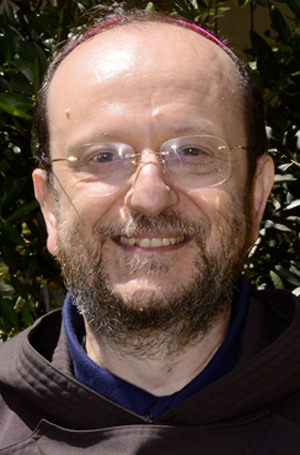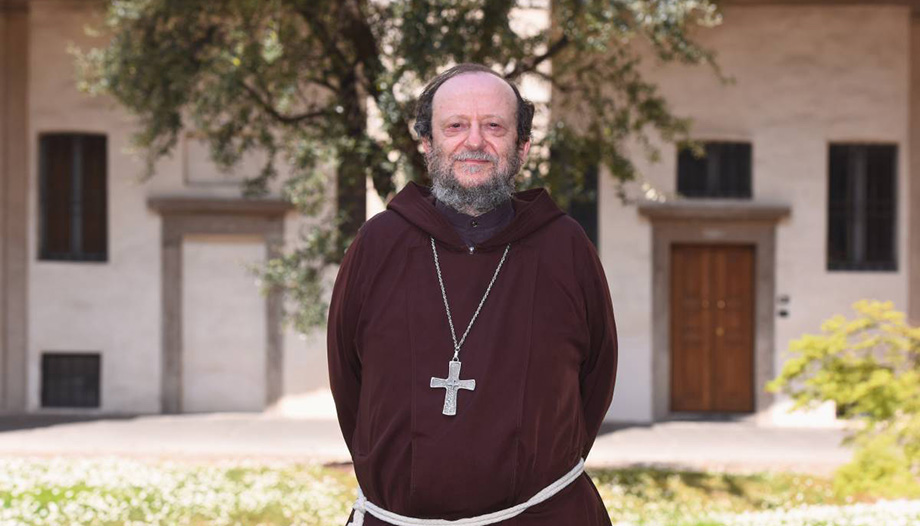When asked if he expected Pope Francis, a few weeks ago, to appoint him Vicar Apostolic of South Arabia, Monsignor Paolo Martinelli replied with absolute certainty: "No, there was nothing to make me suspect this choice".
However, the religious belonging to the Order of Friars Minor Capuchin, until shortly before his new position as auxiliary bishop of Milan, was not surprised that the election again fell precisely on a Capuchin: "We have been present in the Arabian Peninsula for more than a hundred years and the vicar has always been chosen from among our religious. Moreover, two-thirds of the clergy present in these areas belong to our Order. It is the history of a consolidated relationship.
The jurisdiction of the Apostolic Vicariate of South Arabia falls on all Catholics living in the United Arab Emirates, Oman and Yemen. There are more than a million people," Martinelli explains, "all of them migrants, who have arrived in these territories for work reasons: here, then, the first task of the Vicariate is to support the faith journey of these faithful who, in general, frequent the Church a lot.
Another important task of the Vicariate is also to keep good relations with Muslims alive?
- Certainly, it is the second great pillar of the Vicariate's action. This relationship, in recent years, has been marked by the signing of the Document on Human Fraternity that took place in Abu Dhabi in 2019 by the Pope and the great Imam of al-Azhar. It is an event that for us remains a fundamental point of reference and has a prophetic vision. In essence, religions must support universal fraternity and peace.
We, in the territories of the Vicariate, are called to keep alive the memory of this event and at the same time we must commit ourselves to develop its implications from the social point of view, from the point of view of dialogue and cultural and interreligious relations.
The Catholics of the territories of the Vicariate already come from very different cultures and it can be said without any doubt that we are before a Church of the peoples.
Msgr. Paolo Martinelli. Vicar Apostolic of South Arabia
In terms of dialogue, what are the next concrete actions you plan to implement?
- One thing I am doing now is to listen to the reality I am living in order to know it even better, especially to understand well what my predecessor, Monsignor Paul Hinder, did in the long years he preceded me as Vicar.
But I can say that I have realized that there are very concrete aspects that need to be supported, deepened and strengthened: first of all, the intercultural value, already present within the Catholic faith experience.
We must not forget that the Catholics of the territories of the Vicariate already come from very different cultures and we can say without any doubt that we are dealing with a Church of the peoples.
The second aspect is that of education. The Vicariate owns fifteen schools that it manages also thanks to the help of some institutes of consecrated life: very often the students are mostly Muslims and this means that the place of education also becomes a space of confrontation, of interreligious dialogue.
How do you plan to face the various social, political and cultural challenges of the different countries that make up the territory of the Vicariate?

- It is true that the territories are very different from one another and the presence of the Church and of Christians is also varied. For example, in the United Arab Emirates and Oman, the situation is calmer, while Yemen is marked by social and religious tensions.
Every day, my thoughts dwell on the four sisters of Mother Teresa of Calcutta who, six years ago, were killed in Yemen for remaining faithful to their mission of welcoming and supporting the elderly and disabled.
In these situations we should be inspired by Pope Francis' encyclical Fratelli Tutti, which promotes universal fraternity and social friendship.
How is the synodal journey being lived in the Vicariate?
- I inquired about what has been experienced so far: with satisfaction I learned that a well-structured journey has been made and I must recognize that Monsignor Paul Hinder has worked very well. A few days ago, the closing Mass of the consultation phase was celebrated in the particular Church and a document was prepared containing the results of the work done in all the communities and parishes of the Vicariate. I was very impressed by the passion with which the faithful carried out the synodal debate, the balance of which was then transmitted to the Synod secretariat. I am certain that the Apostolic Vicariate of Southern Arabia is truly a Church of the peoples.








